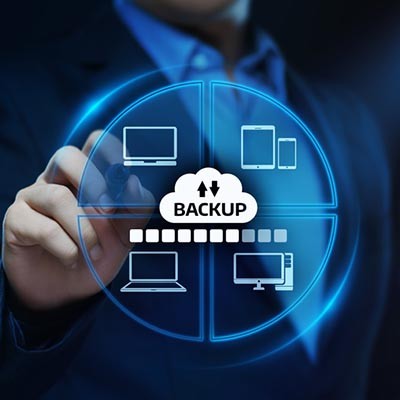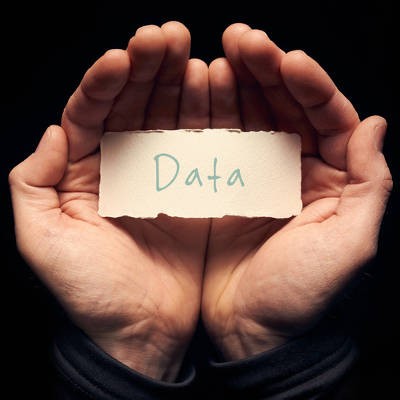It’s true that managed IT service do a lot to make technology accessible to small and medium-sized organizations that wouldn’t typically look immediately to technology to fix parts of their business. One of the innovations that modern business has made is that they prioritize a smarter approach. Apart from data storage and database management, modern businesses are using the data their marketing, sales, fulfillment/distribution, and support departments take in to see exactly how their business is actually functioning and make sound business decisions as a result. Today, we’ll take a look at how the managed IT service provider can help a business with its data management.
Computerware Blog
How often does your business have employees traveling to conferences or working remotely due to circumstances or physical location? With technology improving at a rapid pace, these opportunities are more possible now than they ever were in the past, and depending on the solution implemented, they are far more efficient, too. Of course, one thing that will never change is the need to keep company data secure, no matter what type of Internet connection is being utilized.
The man in the middle has a lot of power and influence over the end result, and this is true even in the technological world. In fact, there are attacks dedicated to this vector, twisting and turning something that your organization needs into what amounts to a threat. We’ll discuss what a Man-in-the-Middle (MitM) attack is, as well as what you can do to combat these threats.
Thanks to file management systems that can be digitized and stored online, filing cabinets can be considered a thing of the past. Of course, you still have to keep digital filing systems organized, but this is easier to do and more efficient than paper files. Today, we provide you with tips on how to ensure that you can keep your files in proper order.
World Backup Day is a time when every business should contemplate whether or not they have proper data backup strategies in place. Considering it was about a month ago, did your organization take the time to think about it? Granted, there isn’t a single day in the year that could explain what your data means to your business, the importance of data backup, and that your businesses should always do what it can to avoid data loss.
Over 90 percent of people in the United States feel like their data is out of their control, and judging from the impression that the European Union’s General Data Protection Regulation left on the world, it’s surely not going to be the last piece of privacy legislation that is issued. Still, will it be enough to urge certain governments and organizations to practice what they preach? The results could have long-lasting effects on businesses, as well.
There are certain instances where you might think having multiple versions of a file is important. After all, nobody is perfect. A file can be lost, damaged, or altered beyond belief, and you’d be none the wiser unless you have multiple versions of it. In this sense, file versioning is crucial to the success of any business that has an eye on the future and a fear of losing progress. Let’s take a look at how file versioning works and why you should take advantage of it.
Legislation to protect the data of users is nothing new, but it has entered a new stage--one where the user has more control over their privacy than ever before. We’re talking, of course, about the General Data Protection Regulation, or GDPR, which has sparked a lot of discussion about how companies collect and protect data by its users. In fact, more data privacy regulations have begun to spring up here and there in response to the affect GDPR has had on the industry.
When discussing the practice of monitoring solutions to prevent threats, it isn’t uncommon for many businesses to put these concerns on the back burner. However, every so often, an example comes around to help inspire businesses to take their monitoring seriously. This time, the example was the arrest of 24 spammers in October for scamming American citizens by impersonating Microsoft support staff members.
Machine learning has become a big deal in a variety of industries, healthcare being a prime example. There are a variety of applications for machine learning in this incredibly important field, all of which show great potential in improving patient care. Below, we dive into just a few examples of how machine learning can improve healthcare.
While data backup is a necessary component to any modern business’ success, the idea itself certainly isn’t modern. The act of protecting information dates back to before dates were even an inkling, when humanity was still writing data on cave walls to preserve it and notching animal bones to aid in primitive mathematics. Let’s review the history of data preservation, and how we’ve gotten to our current point.
On March 22, 2018, a remote-triggered ransomware called “SamSam” demanded a one-time payment of $51,000 be made to restore the city of Atlanta, Georgia’s, data. Despite an operating budget somewhere in the neighborhood of $625 million, Atlanta’s municipal leaders refused to pay the fine. The “hostage situation” has cost the city over $2 million already with an expected $9.5 million more likely to be spent restoring and re-enforcing the municipality’s network and infrastructure. This doesn’t take into account downtime and the significant amount of data lost in the hack. Whether or not you think it’s a good idea to not pay the ransom, if a whole city - especially one as large as Atlanta - can effectively be crippled by a single hack, you better believe that your business has to get serious about its cybersecurity efforts.
Mobile data is extremely important to the productivity and efficiency of modern businesses--especially when employees and administrators are out of the office. The major drawback of this is that it can be an expensive setup, as mobile data transfer can be pricey. We can help you get around this issue by minimizing the amount of data your Android device uses.
One of the biggest problems with emerging technologies is the fact that it can be very hard to tell if they will actually provide any benefit to a business without taking the risk of implementing it. This leaves many businesses in a catch-22 of sorts: they lose money by not implementing a new solution, or they lose money because the new solution wasn’t a good fit.
Data is one of the things in business that you collect naturally and can benefit from, but do you have a system in place that lets you collect and store it for future use? Considering how vital data collection is to the success of any organization, it’s reasonable to suggest that data storage can be a valuable investment for your business’s long-term futures and goals.
Your business is much more vulnerable to dangerous entities than you’d care to admit. Think about it--all it takes is one unexpected event to cause untold amounts of chaos for your business. To make matters worse, these events are often outside of your control. Data loss incidents might be unpredictable, but they can be soothed thanks to a little bit of preventative management.




















